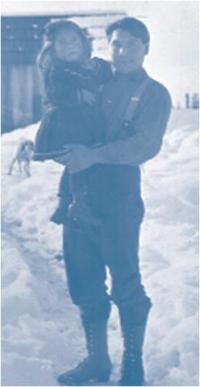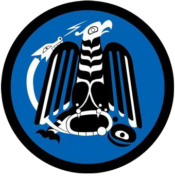
Anthropologist and linguist Edward Sapir acquired the Thunderbird seal club from its owner, Frank Williams, who had inherited it from his father, William. Paid at 50 cents a page, Frank acted as Sapir’s collaborator and chief interpreter in the region. Although Frank did not leave a written record himself, much of what Sapir recorded came from his interviews with Williams. For example, he spoke of the culture-hero of the Nuu-chah-nulth people, Kwatyat, the creator of all things, and his power to transform himself into any form. He described how, in Effingham Inlet, when choxhchoxha [herring-raking] at night, they had to keep tapping with their paddles to frighten off the ?eehtoop [humpback whales] that filled the inlet. Frank provided information on the family specialty of seal and sea-lion hunting, including the secret ?oosimch or preparatory ritual. He also provided details of Tseshaht tutuupata, the hereditary privileges or prerogatives of families.Frank Williams shared with Sapir his knowledge as a participant of the Tlookwaana or “Wolf Ritual,” the principal West Coast ceremonial, held mainly in winter at “inside” settlements. The chief of the Wolves is believed to have four messengers, with rank and names based on the speed of their movements. First is “Sound-of-a-stick-breaking-on-the-ground,” who takes no more time to reach his goal than a stick breaking when stepped on. Next is “Water-drips-down-from-a-standingbush,” who reaches his goal in the time a drop of water falls to the ground, followed by “Adze-chipsfalling-down-on-the-ground,” who takes as long as a falling chip from a piece of wood. Finally, “Muddy-water-that-has-been-stirred-up-settles-down,” who arrives no more quickly than a muddy pool clears. At the Tlookwaana, four of the “wolves” in the ceremony portrayed these messengers, with Frank Williams playing the part of the fastest and highest-ranking of them.
